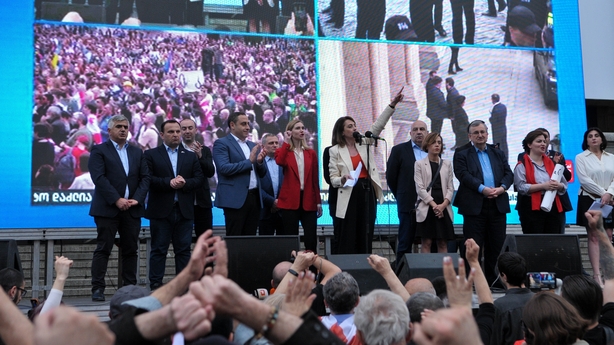Georgian NGOs and media have said they would appeal to the country's constitutional court and the European Court of Human Rights over a controversial "foreign influence" law that has sparked mass protests.
Around 200 Georgian rights groups have vowed to defy the law, which critics have compared to repressive Russian legislation used to silence dissent.
The European Union and United States have denounced the law as undemocratic and warned it derails Tbilisi from its path toward EU membership.
"All of Georgia's leading NGOs, as well as media, will in the nearest future file a joint complaint to the constitutional court against the Russian law," the executive director of Transparency International Georgia, Eka Gigauri, said.
"We will use all the domestic and international mechanisms to halt the law's enforcement until it is definitely nullified," the groups said in a joint statement.
The groups - also including the International Society for Fair Elections and Democracy, a Georgian NGO - said they would also apply to the European Court of Human Rights, arguing the legislation violates the European Convention on Human Rights.

The law forces NGOs and media receiving at least 20% of their funding from abroad to register as "organisations pursuing the interests of a foreign power".
The ruling Georgian Dream party pushed it through parliament on Tuesday, overriding a veto lodged by pro-EU President Salome Zurabishvili.
Opposition parties and rights groups fear that Georgian Dream will use the measures to tighten controls over election monitors and journalists during parliamentary elections scheduled for October.
Georgian Dream, in power since 2012, faces mounting accusations of derailing Georgia from its Western trajectory and leading the country back into Russia's orbit.
The party says it backs Georgia's European aspirations and defends the law as aimed at increasing the transparency of NGO funding.
It accuses western-funded groups of undermining Georgia's sovereignty.
The Black Sea country has been gripped by a wave of unprecedented daily rallies for the past seven weeks since Georgian Dream re-introduced the legislation in April, a year after dropping similar measures after a public outcry.

